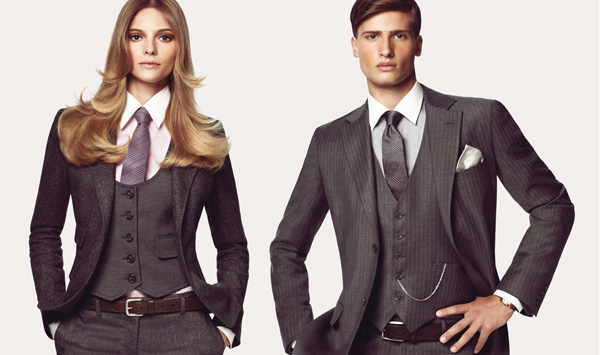The Importance Of Fashion In Today’s Society
The first definition of Fashion in the Oxford dictionary is A popular or the latest style of clothing, hair, decoration, or behavior. I don’t believe that we have to spend thousands of dollars each season to buy the newest clothes and business attire, but we should pay attention to what we wear and what hairstyle do we have. but why the latest style of clothing, hairstyle or even decoration of our office could be considered as an important factor?
here is what we found from riskology:
The clothes you wear and the way you groom yourself will change the way other people hear what you say. It will subconsciously tell them if you’re like them or if you’re different. It will determine whether they listen or ignore. Trust or distrust.
How you dress yourself changes who you are. It changes the value of what you have to say. At least to the people who are looking and listening.
From Quora:
Your clothes not only add to your presentation but also contribute to your behavior, therefore, defining your body language. When you look confident and approachable, you become more confident and approachable. Various studies including one by Joy V. Peluchette and Katherine Karl on ‘The impact of workplace attire on employee self-perceptions show that “Respondents felt most authoritative, trustworthy, and competent when wearing formal business attire.”
From Forbes:
First Impressions Count: The Business Value Of Dressing For Success
To be clear, people who succeed in business come in every shape, size, and personality type. We do our best to represent and include them all within our company’s ranks. Smart and successful people bring their own inherent beauty in every case.
Furthermore, not every day requires time and attention (or the budget) for formal business attire. We place a high priority on health and fitness, and informal clothing allows us to program better, sell better, and be available for planned or impromptu fitness activities.
However, every one of us could benefit from learning a little bit more about how to present ourselves to the world for success. I’ve invited fashion stylist Lindsey Shores (my daughter) to weigh in with some expert thoughts on the ways we could increase our career and business success by considering the visual impressions we make.
“Whoever said, ‘It’s what’s on the inside that counts,’ couldn’t have been more optimistic about humankind,” says Lindsey. “But let’s face it, what’s on the outside can be just as important. Fashion nowadays is moving in every direction. It’s been proven that dressing well can increase your income, she notes. But aside from an increase in income, Lindsey maintains that dressing well is important to a person’s self-respect and composure as well.
The popular columnist ‘Mr. Mafioso’ says there are seven ways to get instant respect,” says Lindsey. I do adore his sharing of ‘dress the part’ as his Number One. Mafioso says, ‘Regardless of what you’ve done in the past, how much money you have in your bank account, how famous you are, or how fat you’ve become, a man in a well-tailored suit will always get treated better than some salame off the street.’”
And his point applies to every business professional, musician, computer guru, receptionist, and golfer. Dressing your part, whatever that part may be, is vital to communicating the impression of who you are and who you want to become, and ideally, it should be the first thing on your mind each morning.
David K. Williams,
– The Intuitive Customer (Book)
…We have all been taught from an early age “First impressions count.” One of the more robust phenomena in psychology is that people use general impressions to evaluate other people. Some of this makes sense. After all, some traits are correlated with each other…
The flat-earthers we referred to in Chapter 1 still believe customers always make rational choices. They don’t. Human beings do not always make sensible, logical choices. The belief that customer decision-making has a basis in rational processes keeps organizations from improving their Customer Experience. For example, if you wanted to buy a watch you could buy one from the gas station for two dollars. The watch will likely work just fine. If it doesn’t? You can replace it for another two dollars.
Most of us don’t sport gas station watches, though, do we? Instead, we buy a watch that suits our view of ourselves and our perceived or aspirational position in life. If you are lucky, you might wear a Rolex valued at thousands of dollars. But why spend so much on the Rolex if all you want to do is tell the time? You spend money on the Rolex because owning a Rolex is prestigious.
You like what it says about you as a person. It’s not about telling the time but about being associated with a group of people. Likewise, most people don’t buy the cheapest car they can find – or even the cheapest one they consider sufficiently reliable. You also don’t buy the cheapest clothes that are the most functional. Human beings are complex animals; we make emotional decisions and then justify them with logic.



